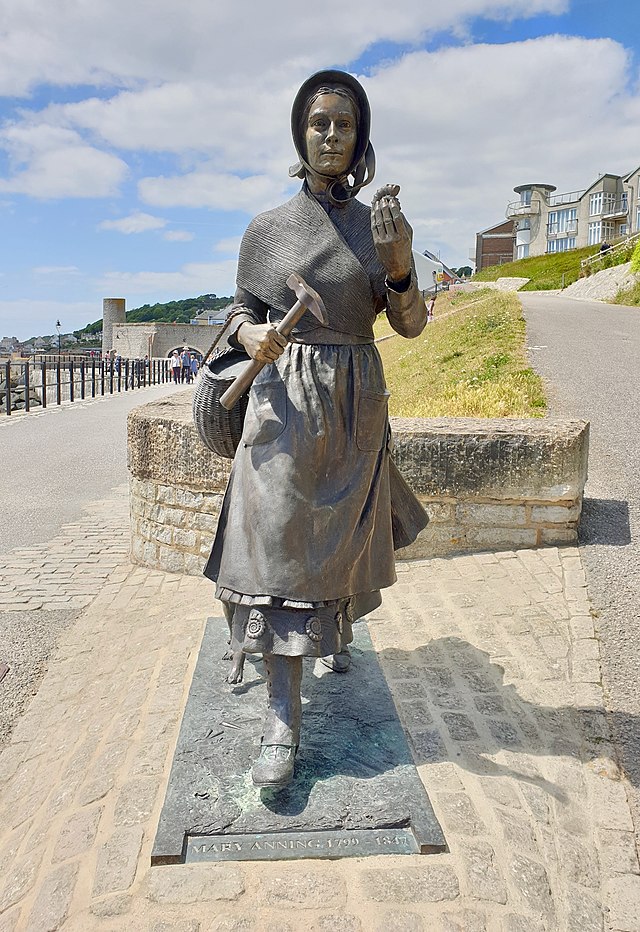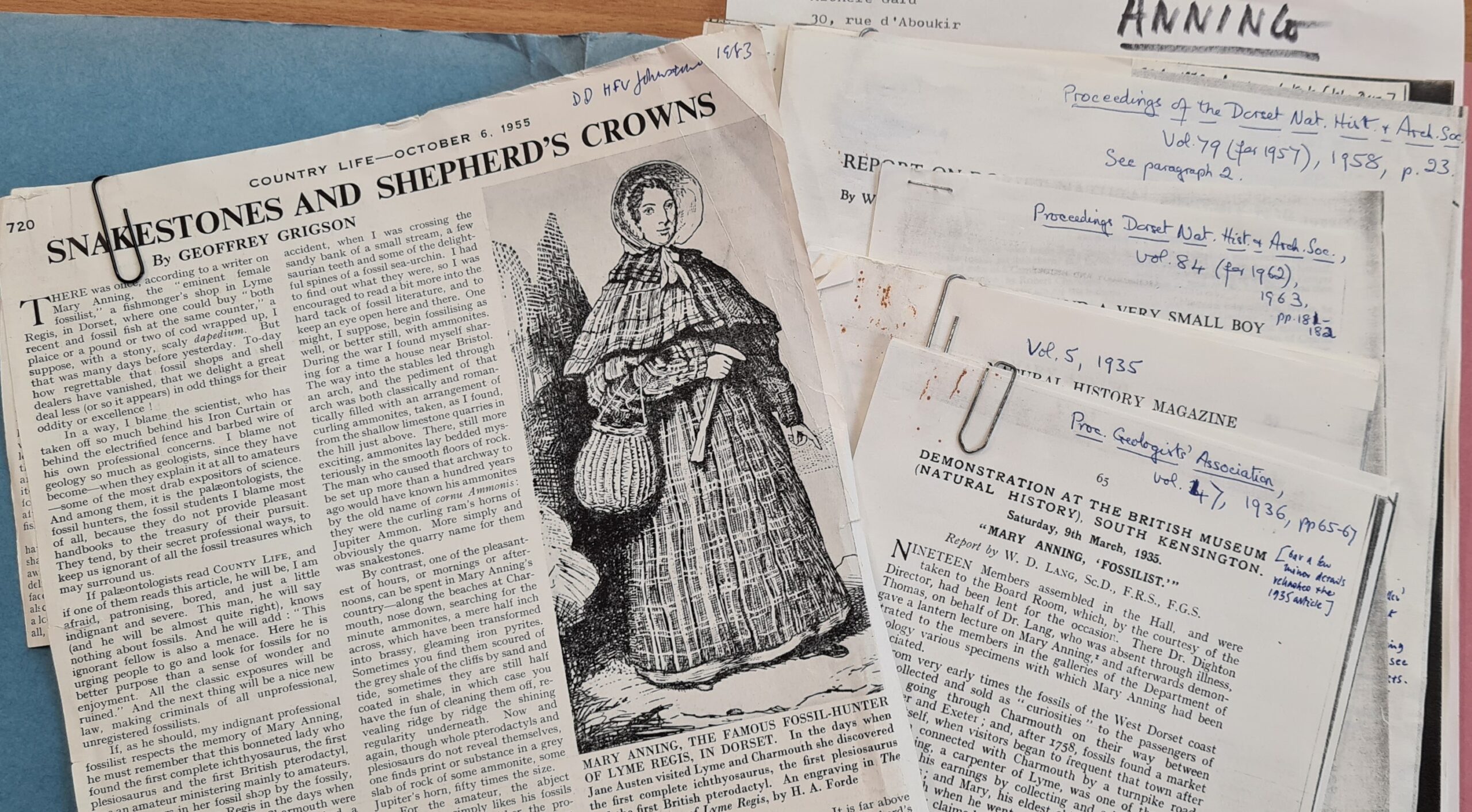In a previous blog post, we introduced you to the author John Fowles, and gave you some background on his life, as well as his interest in Lyme Regis and genealogy.
—
Mary Anning
One family missing from the list of Lyme families given in the previous post was the Anning family. The palaeontologist Mary Anning was of the keenest interest to Fowles, who admired her greatly. In The French Lieutenant’s Woman he wrote “one of the meanest disgraces of British palaeontology is that although many scientists of the day gratefully used her [Mary’s] finds to establish their own reputation, not one native type bears the specific anningii.”1 Happily since that date her name has been given to a number of species.

The recent unveiling of a statue to Mary Anning is a reminder that in 1994 there had been an earlier move, strongly supported by John Fowles, to erect a similar statue on Gun Cliff. The Fowles Collection contains a leaflet where the Lyme Town Council appears to be offering a prize for the winning bronze statue design. Further we have pencil sketches, apparently by Fowles himself, of a 5 foot statue of Mary Anning (hammer in hand) standing on a 5 foot plinth.3 This may have been based on a sketch by Thomas Sopwith of William Buckland (both geologists), and mistakenly reproduced in Fowles’s book A Short History of Lyme Regis as a drawing of Anning by palaeontologist De La Beche.
The Collection also includes correspondence and a Mary Anning screenplay by William Corlett and Joy Whitby.2 Then there are Fowles’s own extensive notes regarding Mary Anning and her history and family, including data from the Lyme parish registers and her family tree. He also corresponded at length with experts and non-experts alike about Mary, her background, the fossils she found and what became of them. He read every book or article about her that he could find, and also replied to a number of would-be authors of books or pamphlets on the subject as her name became increasingly well-known. Some of these last were decidedly amateurish as Fowles’s annotations make clear: “Full of errors and misconceptions” was his comment on The First Woman Geologist written by an academic from University College, Cork, and apparently designed for his students!3

Some items in the Collection are only single letters, but his exchanges with Dr Hugh Torrens, professor and historian of geology and palaeontology, and an acknowledged expert on Mary Anning, is of particular interest.3 Also with Sir Crispin Tickell, former British ambassador to Brazil and the United Nations, who only died earlier this year, was a great-great-great nephew of Anning, gave a paper at Lyme on Mary Anning Day in 2012, and wrote a short book about her in consultation with Fowles and Torrens.3 Another correspondent was Carol Donoughue, first wife of Lord Donoughue, Harold Wilson’s head of his new policy research unit. 3 But there are many other letters, notes and cuttings, all relating to Anning and her family.
And the Dorset History Centre library also holds books about Mary Anning by at least nine authors; they can be found under references: B/ANN, 560, 560.92, 567.9, and 942.331 LR
Here is a further selection of local family names with trees or notes to be found in the Fowles Collection:
| Fane and Henley families4 | Harvey or Hervey family6 |
| Follett family5 | Hassard family5 |
| Fowler family5 | Hill family5 |
| Gordge or Gorges family5 | Hillman family5 |
| Govier family5 | Hoare family5 |
| Guise family5 | Horner family5 |
| Gundry family5 | Humphrey family5 |
| Hallett family5 | Hussey family5 |
—
References:
https://archive-catalogue.dorsetcouncil.gov.uk/records/D-FWL [“D-FWL”]
John Fowles 1969 The French Lieutenant’s Woman [“The FLW”]
1 The FLW p 53
2 D-FWL, Box 5
3 D-FWL, Box 3
4 D-FWL, Box 8
5 D-FWL, Box 6
6 D-FWL, Box 7
7 D-FWL, Box 12
—
Missed earlier posts in this series? You can read them here:

